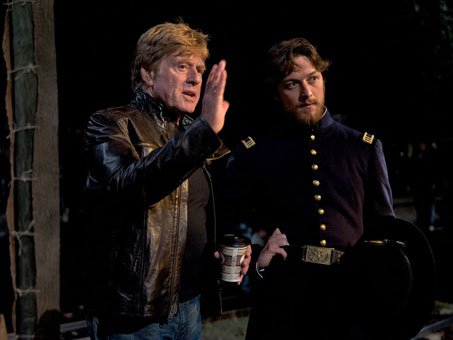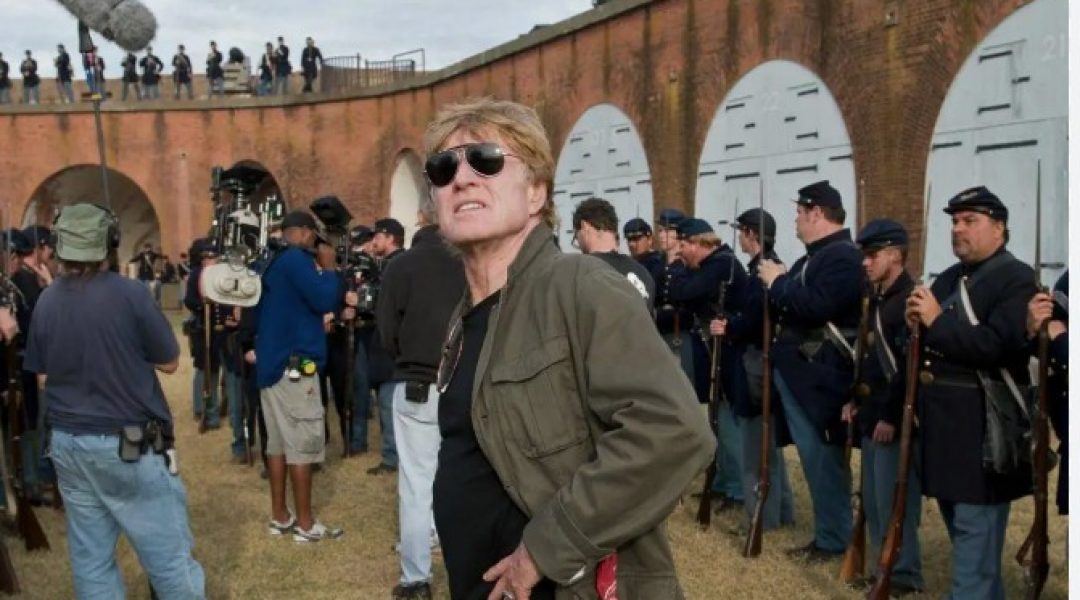Redford directed the period drama he premiered at the 2010 Toronto Film Festival.
Editor’s Note: This interview was conducted at the 2010 Toronto Film Festival, prior to the theatrical release of “The Conspirator” in April 2011. We are reposting it as a tribute to Robert Redford, who directed the period drama on location in Savannah, Georgia. It currently is available on streaming platforms.
Cowboys & Indians: The Conspirator, your latest film as a director, focuses on the trial of Mary Surratt, who was accused of being involved with her son – and, among other folks, John Wilkes Booth – in the plot to assassinate Abraham Lincoln. Why do you think this story is especially relevant right now?
Robert Redford: There are two reasons. The first is the story itself, which is a story that very few of us know. A story that sits inside a story that everybody knows — the assassination of Abraham Lincoln, and everything that goes with it, like Booth and the Ford Theatre and so on. And the second reason is the obvious parallel to things that exist today. But that’s not the story we’re telling. We’re telling a more human and personal story. It’s up to the critics, the reviewers and the audience to discover those parallels on their own. The history itself provides that. We didn’t need to.
C&I: Kevin Kline plays Secretary of War Edwin M. Stanton, who’s determined to punish someone, anyone, as quickly as possible after the assassination. He’s afraid anarchy will break out — or the Civil War will start all over again — if he doesn’t move swiftly enough.
Redford: At the very beginning, I told Kevin that I thought this was a wonderful part. But it would not be wonderful if there was not a point of view expressed clearly. And he had to get across that it was a legitimate point of view. Because the circumstances of the time seemed to legitimize that point of view. At the same time, though, you want to keep it simple. You don’t want to overstate it. Because then you move toward the edge of propaganda. To me, it was all about the emotions within the characters. And with his character, the emotions that were driving him to maintain peace and unity in such a fragile situation were quite extreme — and therefore very dramatic.
C&I: Stanton more or less announces that, if he can’t find Mary Surratt’s son, he’ll settle for hanging Mary, because that is what’s required to keep the peace.
Redford: And that’s very debatable. But for me, since we were not going to get into politics of the story as much as the personal dimension, it was important to get across the idea that this character is thinking, “Well, OK, something has to be done here. And I’m the one who has to do it.” Because that’s part of the American tradition — to be tough and strong-willed. But the question that is raised is, what happens when the national interest becomes a special interest? Because that’s when things start to get morally skewed. I like Kevin’s performance a lot because he makes that statement without flinching. He makes it with a passionate belief.
C&I: Robin Wright plays Mary Surratt, and James McAvoy plays Frederick Aiken, the war hero who serves as her defense attorney. What moved you to cast them?
Redford: Actually, they were my first choices. See, for me, there’s always a certain amount of trust involved. In other words, there are things in the script that you don’t have to talk about, because you know they’re there. All you need to do — all you want to do — is give your actors a chance to find them and play them, bring them out. And I knew they’d be able to do that.

C&I: What are some of the challenges you face when directing a period film such as this?
Redford: One of the biggest challenges for me was to make sure this didn’t sound like what I call “proclamation talk,” where it seems like the actors are posturing, or reading their lines from a parchment. On the other hand, we had to be authentic about how people really spoke, what the idiom was like and so forth. The challenge always was, how can you make these characters as real as possible while at the same time being legitimate insofar as the way people really spoke then? Fortunately, I had a really great cast. I couldn’t be more pleased by the actors in this film and their performances.
C&I: Finally, is it true you and your friend Paul Newman were considering one last project together before his death in 2008?
Redford: Yes, I suggested to him that we reteam for a film version of Bill Bryson’s book A Walk in the Woods [a movie Redford eventually made with Nick Nolte in 2015]. It was about two older guys walking the Appalachian Trail — which they had no business trying — and about their relationship. I’ll always feel sad that that didn’t happen.














